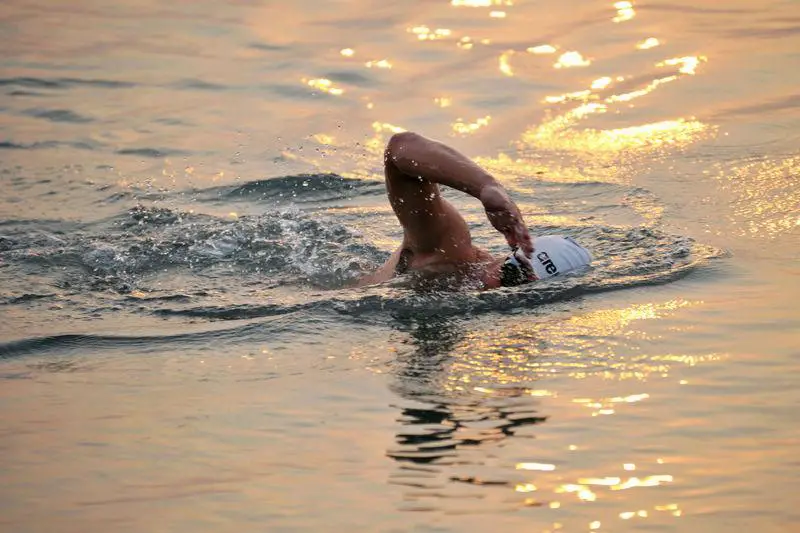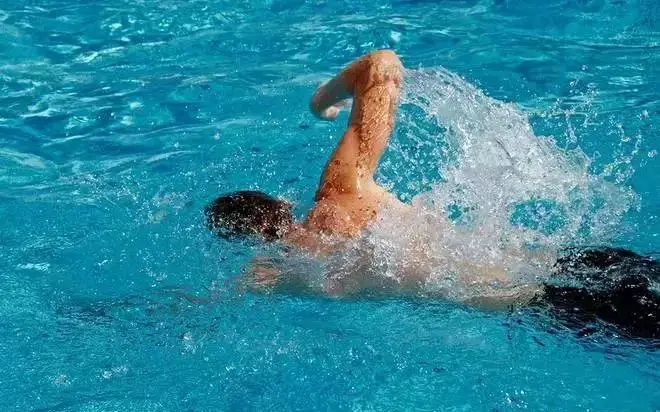Written by: TheSilverPrince

Everything you need to know about pink eye and whether or not you can go for a swim with it
Pink is never a pleasant condition to be dealing with. Though by no means something that should cause too much alarm, the fact that it’s often itchy and uncomfortable means it can really delay you from doing an important task or engaging in your favorite hobbies.
One of those hobbies might include swimming. You might be wondering what harm could come from swimming, even if you have pink eye. Is there any real danger to swimming with pink eye? Could it get worse? All that and more will be answered in the article below:
What’s Pink Eye?
Table of Contents
To put it simply, pink eye is a condition where there is either inflammation or infection of the transparent membrane that lines your eye/s. It can also be known as conjunctivitis because the membrane lining your eyes is called the conjunctiva.
Symptoms of pink eye (conjunctivitis) can include:
- Itchiness of the eye/s
- Redness of the eye/s
- Tearing
- A gritty feeling in the eye/s
- Possibly a discharge that forms a crust when dried.
When the blood vessels in this part of your eyes become inflamed, they begin to swell can cause redness. Hence, your eye takes on a pinkish hue. Though this rarely affects your vision, it will definitely cause irritation and discomfort. When dealing with pink eye, medical treatment and an early diagnosis are necessary to limit the spread.
How Do You Get It?
Pink eye can be contracted for a number of reasons. It is usually the result of irritation or a viral or bacterial infection. Knowing the cause of pink eye can definitely help you limit its spread and cure yourself of it as quickly as possible.
Conjunctivitis caused by a Virus or Bacteria
There are a host of viruses that cause pink eye but the most common one is the adenovirus. Viruses and bacteria can come into contact with the eyes through the air, from bathing in unclean waters, or from your hands when you touched your face. Pink eye can also be the result of colds or fevers.
Conjunctivitis caused by an Allergic Reaction
Pollen or other foreign substances can cause an allergic reaction in your eye/s which can lead to pink eye. In most cases, these can be treated with allergy eyedrops.
Conjunctivitis caused by Irritation
Certain chemicals or foreign objects can enter your eye and cause irritation if not washed off immediately. Sometimes, even the washing of the eyes can cause irritation that leads to pink eye.
The use of contact lenses too can lead to eye irritation. It’s important to be cautious when wearing contact lenses and discontinuing use immediately after irritation occurs. Otherwise, it can lead to pink eye or worse conditions.
Can You Go Swimming With Pink Eye?
The short and sweet answer to this question is no. You are absolutely not allowed to go swimming if you have pink eye. Depending on the cause of pink eye, swimming in a pool can lead to the condition becoming worse while also placing others at risk. Swimming in the ocean or lakes is equally as discouraged.
The best thing to do is to stay isolated and follow the treatment laid out for you by your physician.
The Risks
There are several reasons why swimming with pink eye is not a good decision to make. No matter how much you wanna swim, the risks make sure that it’s not worth attempting until the condition has been cured. The following are the things that could happen if you decide to swim with the pink eye:
- You put other swimmers at risk. Most kinds of pink eye are highly contagious. Swimming in a pool, even if chlorinated, can contaminate the waters and place the other people swimming around you at risk of infection. Even being in close proximity to other people, no matter the setting, is discouraged.
- Chlorine can aggravate it. Chlorine is a chemical that can react negatively to your pink eye and cause some serious discomfort. It can also rinse the tears in your eyes which keep them moist and clear. Without this moist film, your eyes are at even more danger of being irritated or contracting an infection from bacteria all around us.
- The germs in the water can worsen the infection. Especially true for lakes or the ocean, swimming in unclean waters can put you into contact with bacteria and other small contaminants which can definitely make the pink eye worse or delay recovery. Even swimming pools that are regularly treated can still carry foreign contaminations.
These things are reason enough to make sure you steer clear of pools or swimming until your eyes have enough time to heal. It’s only the responsible thing to do.
What If You Wear Goggles?
You might be thinking “well, what if I wear goggles while I swim? Surely that’ll protect my eyes and protect others from infection too!” You would be forgiven for thinking so. After all, goggles are recommended to be used generally anyways.
But the truth is, just like wearing sunglasses, goggles aren’t enough to protect those around you from pink eye. You cannot guarantee after all that you’d be wearing goggles or sunglasses 100% of the time you’re outside. You cannot also stop other swimmers from mistaking your goggles as their own and putting them on.
When Can You Swim Again?
It might take a few days to a week for conjunctivitis to heal completely. No one but your doctor can say for sure though if the condition is completely gone. Even when classified as cured, it would be wise to wait a few days before getting back into the water. This gives enough time for you to be absolutely sure it’s gone and to give your eyes ample time to get back to their normal state.
How to Get Rid of It?
The main thing to keep in mind is that once irritation or inflammation of the eye or eyes does not subside in 12 to 24 hours, you must schedule an appointment with a doctor.
The doctor can help you pinpoint the cause (if unknown), identify what kind of conjunctivitis it is, and prescribe medication such as eye drops to begin the healing process. A doctor will also give you a definitive list of do’s and don’ts that should be followed religiously. There are also some things you can do at home to manage pink eye.
Some remedies you can also do to proactively deal with pink eye includes:
- Cold Compress. Applying a cold, damp cloth on the affected eye can reduce the swelling of the blood vessels and reduce irritation.
- Cleaning With Damp Cloth. You can gently try removing any debris or foreign objects from your eye with a clean wet tower or by washing it with clean water.
- Lubricating Eye Drops. Lubricating eye drops are over-the-counter products that are effective in reducing redness, calming irritation, and lubricating the eyes.
- Pain-Relief Medicine. Certain over-the-counter medications can reduce the symptoms of pink eye and help you manage the discomfort.
- Avoid Scratching at All Costs. This, of course, should come as a no-brainer. Under no circumstances are you ever allowed to touch or scratch at your pink eye. This will only irritate it more and bring any germs on your hands into contact with your already infected eye.
How To Prevent Ever Getting Pink Eye?
Prevention is the best treatment for any illness. If you do not currently have pink eye, the best thing you can do is ensure that you never get it. This can be done by adhering to the following:
- Try as best you can to stop touching your face with your hands. Especially avoid touching or rubbing your eyes.
- Always dry yourself or clean your face using newly washed towels.
- Always wash your hands.
- Never, ever share your towels or washcloths with other people.
- Always make sure to regularly change pillowcases, bedsheets, and blankets.
- If you’ve recently been cured of pink eye, throw away mascara, eyeliners, or other pieces of makeup that might still be contaminated. This prevents the likelihood of catching it again.
- Never share makeup with other people; especially eye makeup.
If you are one of those people who have recently recovered from pink eye, perform all these suggestions to make sure you remain free of pink eye.
Bottom Line
It goes without saying that no one likes to deal with pink eye. It is highly uncomfortable and truly takes so much time out of life. The best thing really is to ensure you never get it by practicing good hygiene.
If you do get it though, be sure to see a doctor and take all the right steps for it to be treated and healed as quickly as possible. If managed correctly, you’ll be back to normal in no time. And, of course, refrain from going swimming with pink eye. This is never, ever a good idea!

